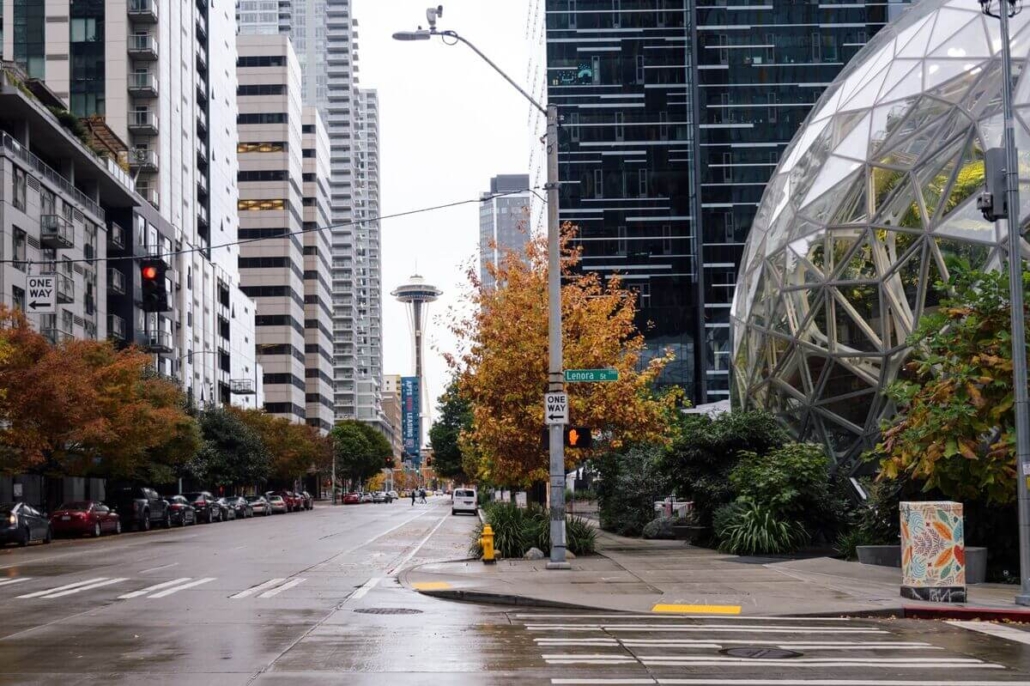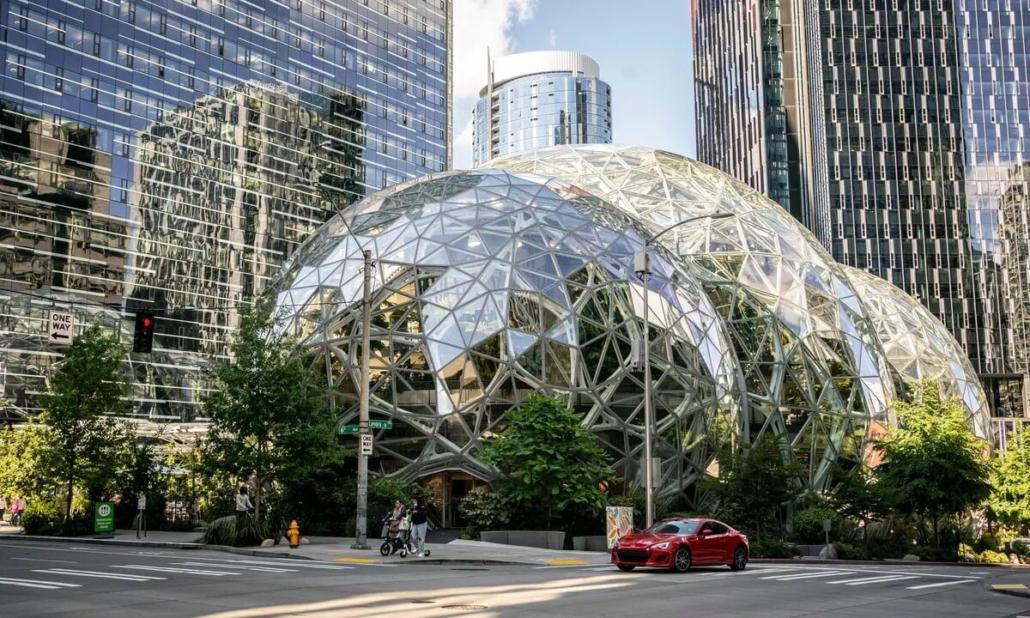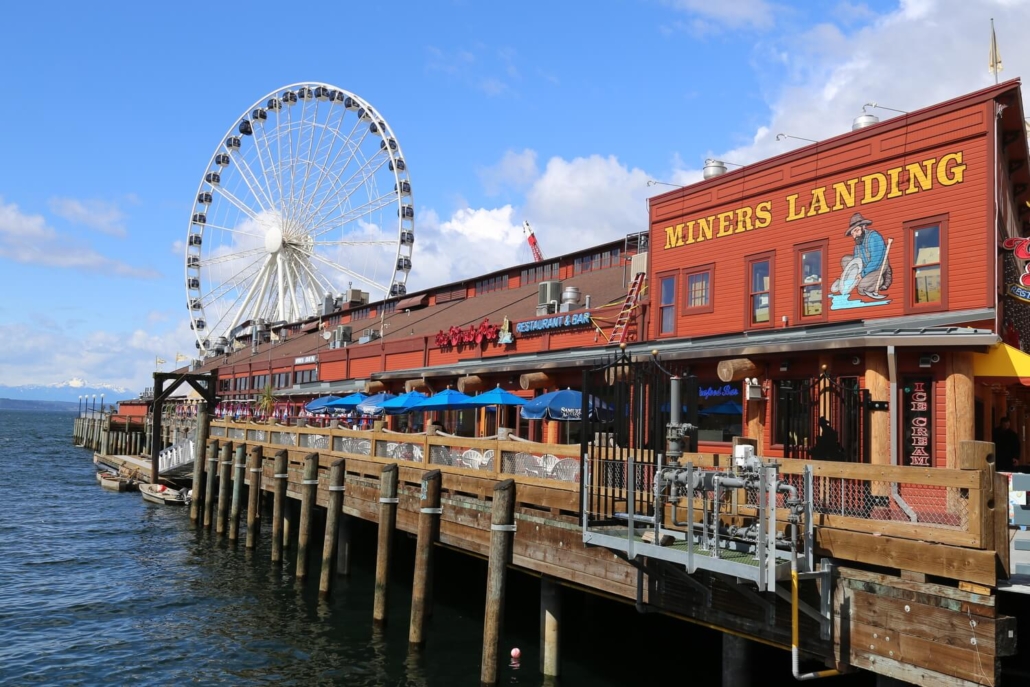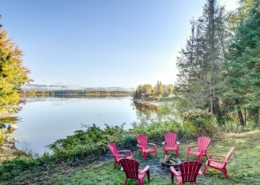Reasons Why Investing in Airbnb in Seattle is a Smart Move
- The Best US Cities for Airbnb Business
- In-Depth Guide to Launching Your Airbnb Venture in Seattle
- Mastering the Intricacies of Taxing Airbnb Income in Seattle
An Invitation to an Exciting Investment Opportunity
Imagine owning a property in Seattle – the “Emerald City,” known for its vibrant culture, thriving tech industry, and stunning landscapes. Now, imagine this property doesn’t just serve as a home or long-term rental, but opens the doors to the world of short-term rentals and an attractive income stream. Welcome to the exciting world of Airbnb! This article explores why investing in an Airbnb property in Seattle could be one of your smartest financial moves.
The Growing Trend of Short-Term Rentals
Seattle’s Tourist Appeal
Seattle, with its rich cultural heritage, iconic landmarks like the Space Needle, and dynamic food scene, continues to attract millions of tourists every year. As visitors seek unique, personal experiences, many prefer Airbnb accommodations over traditional hotels.

The Boom of Short-Term Rentals in Seattle: A Golden Opportunity for Investors
The past few years have seen an incredible increase in the demand for short-term rentals in Seattle. This upsurge is driven by a mix of factors that have positioned Seattle as an attractive destination for both tourists and corporate travelers.
In 2022 alone, Seattle and King County played host to an impressive 33.9 million visitors. This figure represented a significant upswing of 27.4% compared to the previous year, with overnight guests accounting for over half of these visitors, at 18 million – a notable 34.9% increase.
The economic impact of this visitor influx was substantial. Tourists and travelers boosted the local economy by injecting a remarkable $7.4 billion into the city and county in 2022, a 37.8% rise from the 2021 figures. Moreover, state and local tax revenues saw a robust boost from the previous year, climbing by 34.4% to reach a whopping $689.1 million in 2021.
At the same time, the city’s thriving tech sector played a crucial role in this trend, propelling a 7% increase in corporate travel to Seattle in 2022.
On top of this, a growing preference for experiential living, particularly among millennials, is reshaping the accommodation landscape. Today, over 60% of travelers opt for short-term rentals over traditional hotel accommodations when planning for extended stays. The distinctive, personalized experiences that platforms like Airbnb provide have further fueled this shift in preference.
Why Investing in Airbnb in Seattle is a Lucrative Investment
High Rental Yield
The dynamic interplay of strong demand and limited supply for short-term rentals in Seattle has paved the way for impressive rental yields. As per the 2022 data from AirDNA, a leading source of short-term rental analytics, the average monthly income for an Airbnb property in Seattle stands at approximately $2,896. This figure notably outstrips the average monthly rent of $2,200 for long-term rentals in the city, as per Zillow’s 2022 report.
This substantial revenue potential, combined with the ability to flexibly adjust rates based on peak and off-peak seasons, positions Airbnb investments as a more lucrative avenue compared to conventional long-term rentals in Seattle.
Flexibility and Control
With Airbnb, you have the flexibility to use your property as per your needs. Want to use it yourself during the holidays? You can! This control over your property makes Airbnb a preferred choice for many investors.
Growing Popularity of Airbnb
Due to the growth of the sharing economy and the rising demand for distinctive travel experiences, Airbnb has seen a remarkable increase in popularity in the city of Seattle. Seattle’s vibrant culture, breathtaking landscapes, and booming tech sector have attracted a significant influx of visitors seeking personalized and immersive stays. Airbnb’s user-friendly platform has made it easy for hosts to list their properties, while travelers can effortlessly search for and book accommodations. The trust-based system, including comprehensive reviews and identity verification, has fostered a sense of security and reliability within the Airbnb community. As a result, Airbnb has captured a substantial market share in Seattle’s hospitality industry, offering a wide range of accommodations that cater to the diverse preferences of travelers. This growing popularity of Airbnb in Seattle reflects the city’s allure as a desirable destination and its commitment to providing memorable and authentic experiences for visitors.
Useful link: Airbnb Statistics and Legal Issues: Seattle.

Seattle’s Airbnb Regulations
Permit Requirements
To legally operate an Airbnb in Seattle, it is essential to comply with the city’s permit requirements. The official Seattle website outlines the process for obtaining the necessary licenses and certifications. Firstly, you must obtain a City of Seattle business license tax certificate, which can be done online at www.Filelocal-wa.gov. It is important to note that the business license tax certificate should be obtained prior to applying for the regulatory license for short-term rental operators. Additionally, if your property falls under Seattle’s Rental Registration and Inspection Ordinance, you must register it with the Seattle Department of Construction and Inspections before proceeding with the regulatory license application. The next step involves applying for the short-term rental (STR) regulatory license through the Seattle Services Portal. If you do not already have an account, you will need to create one. While paper applications are accepted, it is worth noting that they take longer to process. The fee for the STR operator regulatory license is $75 per unit, and it requires annual renewal. It is crucial to complete the licensing process to ensure compliance and avoid potential fines and penalties associated with operating an STR without the required permits.
Learn more about Seattle’s Airbnb Regulations here.
Seattle’s STR Ordinance
The number of units that a single STR operator, whether they be an individual, a household, a group, or a corporate entity like an LLC, may operate is subject to restrictions under Seattle’s Short-Term Rental (STR) Ordinance. When applying for an operator license, it is necessary to provide the specific addresses of the units to be included. Under the ordinance, most STR operators are allowed to operate two units. The first unit is typically the operator’s primary residence, while the second unit can be a secondary dwelling where the operator does not reside. The primary unit can take the form of an attached or detached accessory dwelling unit (ADU or DADU) or an “in-law” apartment within a larger housing unit. It’s important to note that rented rooms without dedicated kitchens and bathrooms are not counted towards the two-unit limit and do not require an additional license. Such rooms are covered under the STR operator’s primary or secondary residence license. For instance, if a house has three rooms available for rent on an STR platform, only one license is needed for the primary residence, which encompasses all three rooms.
Tax Implications
When it comes to tax implications, it’s important to note that the income generated from Airbnb rentals is subject to taxation. However, there are certain tax benefits available to Airbnb hosts that can help offset these liabilities and enhance the overall net return on their investment. One such benefit is depreciation, which allows hosts to deduct a portion of the property’s value over time as it experiences wear and tear. Additionally, hosts may also be eligible to claim expense deductions for costs related to managing and maintaining their Airbnb property, such as property management fees, cleaning expenses, and repairs. These deductions can help reduce the taxable income and lower the overall tax burden. It’s advisable for Airbnb hosts in Seattle to consult with a qualified tax professional or accountant to ensure compliance with tax regulations and to maximize the available tax benefits.
In the State of Washington, Airbnb plays a role in the collection and remittance of various taxes for reservations made within the state. When guests book Airbnb listings located in Washington, they will be required to pay specific taxes as part of their reservation.
Occupancy tax collection and remittance by Airbnb in Washington state
One of the taxes applicable is the Washington Combined Sales Tax, which ranges from 7.0% to 9.6% of the listing price, including any cleaning fees. This tax includes guest fees for WA State Sales Tax and is applicable for reservations lasting 29 nights or fewer. The Washington Combined Sales Tax comprises the state retail sales tax of 6.5% and the local retail sales tax, which varies based on the county and city of the listing. For more detailed information on these taxes, guests can refer to the Taxes & rates | Washington Department of Revenue.
In addition to the Washington Combined Sales Tax, guests booking in Washington will also incur other locally imposed taxes on transient lodging. These include the Special Hotel/Motel Tax, Convention and Trade Center Tax, Regional Transit Authority Tax, and Tourism Promotion Area Charges. The Special Hotel/Motel Tax typically amounts to 1-5% of the listing price, including any cleaning fees, for reservations lasting 29 nights or fewer. The rates and applicability of other local taxes vary depending on the specific cities and counties.
For guests booking Airbnb listings located in the city of Seattle, Washington, an additional tax known as the STR Platform Fee will be charged. This fee amounts to $4 per night for reservations lasting 28 nights or fewer and is applicable to certain listing categories. To obtain more detailed information on this fee, you can refer to the Seattle Short-Term Rentals website.
It is important for both hosts and guests to be aware of these tax requirements and to ensure compliance with the relevant regulations. Airbnb facilitates the collection and remittance of these taxes to the appropriate authorities, making the process more streamlined and convenient for all parties involved.
Useful link: Seattle, WA – Airbnb Help Center.

Risks and Considerations of Investing in Airbnb in Seattle
Check out How to deal with the common Airbnb risks encountered by the hosts.
Market Volatility
While the Airbnb market is promising, it’s not immune to volatility. Factors such as changes in tourism patterns, the economy, or regulations can impact your investment.
Dealing with Market Volatility
While the Airbnb market holds promise, it is crucial to acknowledge its susceptibility to volatility. To mitigate this risk, hosts should stay informed about changes in tourism patterns, economic conditions, and regulations that could impact their investment. Diversifying their offerings by targeting different guest demographics, such as business travelers or long-term renters, can help mitigate the effects of market fluctuations.
Maintenance Costs
Maintaining an Airbnb property to meet guest expectations involves costs, including cleaning, repairs, and upgrades. However, these costs can be factored into the rental price, and excellent property management can help keep them in check.
Dealing with Maintenance Costs
Meeting guest expectations often involves ongoing costs related to cleaning, repairs, and property upgrades. To manage these expenses, hosts should factor them into the rental price, ensuring it covers not only regular maintenance but also unexpected repairs. It is wise to set aside a portion of the rental income specifically for maintenance purposes. Additionally, establishing a network of reliable and cost-effective service providers can help minimize maintenance expenses while ensuring the property remains in excellent condition.
Time Commitment
Running an Airbnb property demands time and effort, from managing bookings to addressing guest queries. While this may be a deterrent for some, hiring a property manager or using Airbnb’s co-hosting feature can ease the burden.
Dealing with Time Commitment
Running an Airbnb property can be time-consuming, especially when it comes to managing bookings and addressing guest queries. Hosts who find themselves overwhelmed can explore options to streamline their workload. Hiring a professional property manager can alleviate the day-to-day responsibilities, allowing hosts to focus on other endeavors. Alternatively, utilizing Airbnb’s co-hosting feature enables hosts to share the workload with a trusted individual, providing flexibility and relief from the time commitment.
Conclusion
Investing in Airbnb in Seattle is a smart move, considering the city’s tourist appeal, rising demand for short-term rentals, high rental yield, and the flexibility that Airbnb provides. However, like any investment, it comes with risks and considerations that must be thoroughly understood and managed. The opportunity is ripe for those willing to navigate these challenges and capitalize on the Airbnb trend in Seattle.
Explore:
Why Investing in Airbnb Properties in Dallas is a Fantastic Opportunity.\
The Numbers Speak: Why Airbnb in Philadelphia is an Outstanding Investment


















